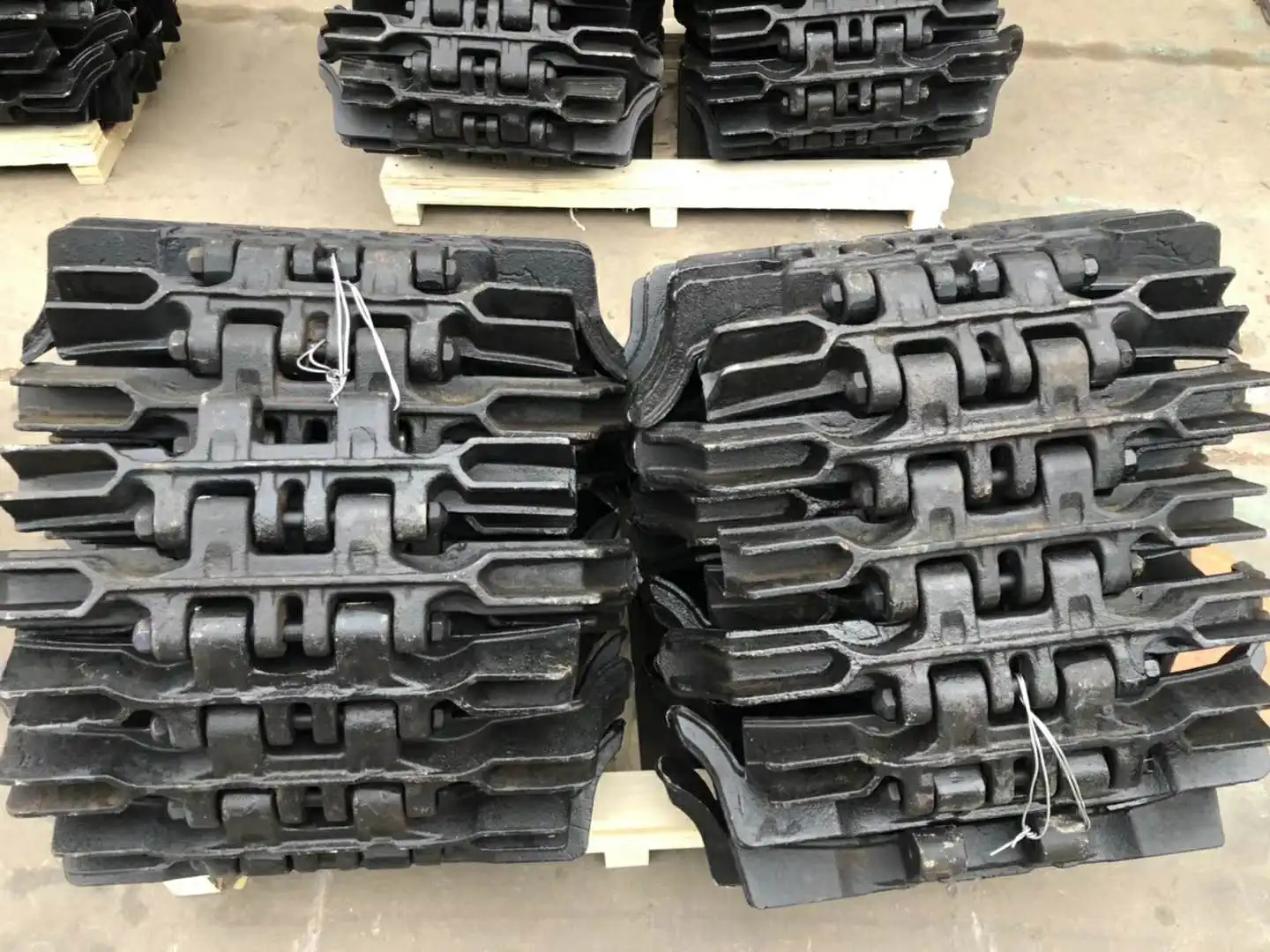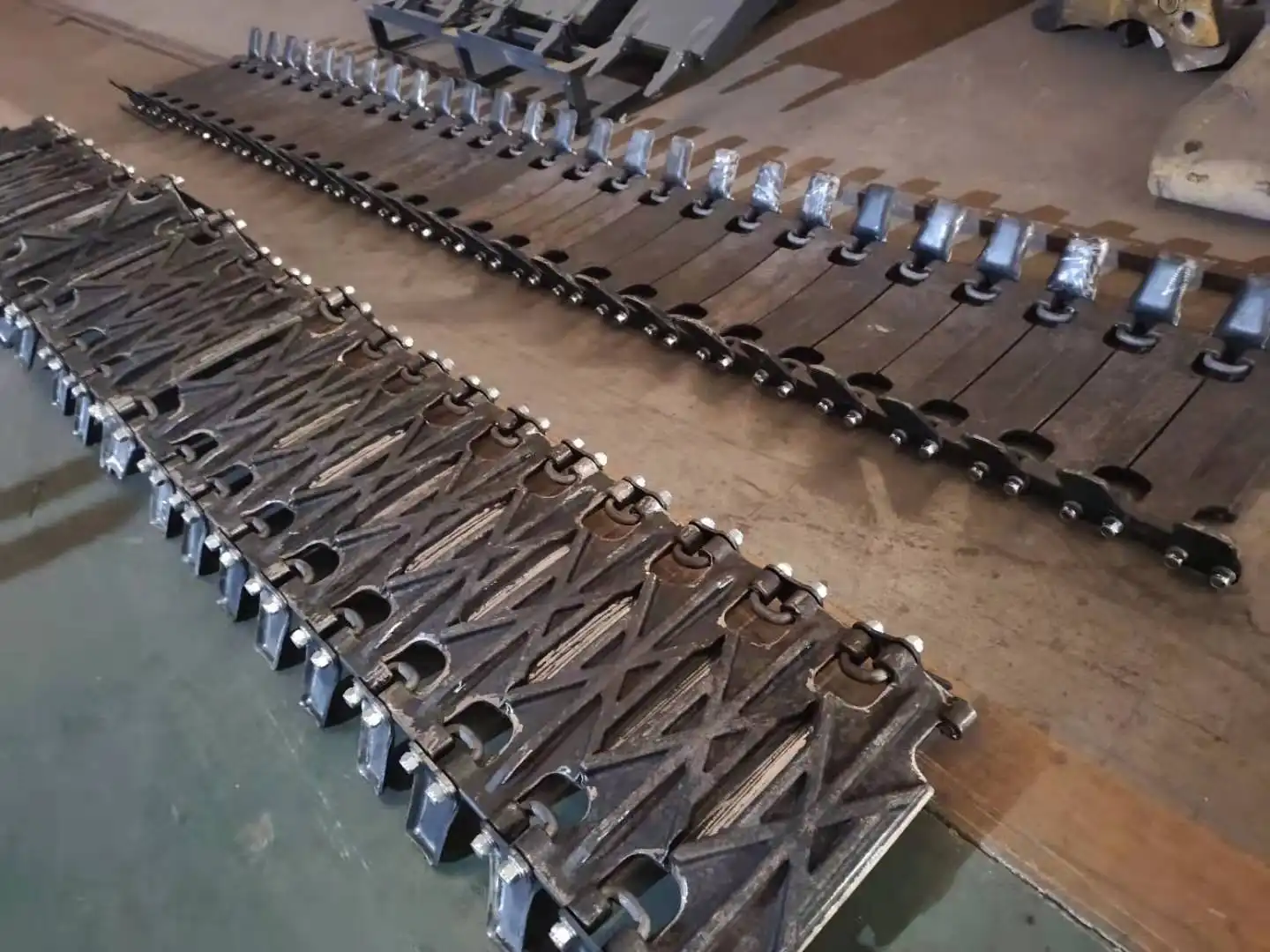What process is used to produce dump truck anti-skid tracks?
The production of dump truck anti-skid tracks involves a sophisticated manufacturing process that combines advanced metallurgy, precision casting, and rigorous quality control. These essential safety components undergo three primary phases: material preparation and pretreatment, molding and casting, and assembly with performance optimization. The entire process typically takes 7-15 business days and involves specialized equipment, including CNC machines, robotic welding lines, and automated inspection systems. Understanding this manufacturing journey helps procurement managers and engineers make informed decisions about track selection, customization options, and delivery expectations. Each track set weighs approximately 1500kg and must withstand extreme conditions ranging from -40°C to +80°C while providing superior traction on mud, snow, gravel, and sand terrains.
Material Preparation And Pretreatment
The foundation of reliable dump truck anti-skid track production begins with meticulous material selection and preparation. Steel alloys form the backbone of these robust components, chosen specifically for their resistance to corrosion, wear, and extreme temperature fluctuations.
Steel Alloy Selection and Specification
Manufacturers typically utilize high-carbon steel alloys containing chromium, manganese, and molybdenum to achieve optimal strength-to-weight ratios. The steel undergoes chemical composition analysis to ensure it meets industry standards for tensile strength, usually exceeding 800 MPa. Raw materials arrive in various forms including steel plates, bars, and pre-formed sections that will become track segments, pins, and connecting hardware.
Quality control teams perform incoming inspection protocols, checking for surface defects, dimensional accuracy, and material certificates. This stage prevents costly production delays and ensures every component meets the demanding requirements of heavy-duty applications in construction, mining, and logistics operations.
Heat Treatment and Hardening Processes
Heat treatment represents a critical phase where raw steel transforms into durable dump truck anti-skid track components. The process involves controlled heating to temperatures between 850-950°C, followed by precise cooling rates that determine the final hardness characteristics. Quenching and tempering operations create the ideal balance between hardness and toughness, preventing premature wear while maintaining flexibility under load.
Advanced furnaces with computer-controlled atmospheres ensure uniform heating throughout each component. Temperature monitoring systems record every stage, creating traceable quality documentation that purchasing managers value for compliance and warranty purposes.
Surface Preparation and Cleaning
Before proceeding to molding operations, all steel components undergo thorough surface preparation. Shot blasting removes mill scale, rust, and contaminants that could compromise casting quality. The cleaned surfaces receive inspection for cracks, inclusions, or other defects that might affect performance.
Some manufacturers apply protective coatings during this stage, particularly for components that will be exposed to harsh environmental conditions. These treatments extend service life and reduce maintenance requirements for fleet operators working in challenging terrains.

Molding And Casting
The casting phase of the dump truck anti-skid track transforms prepared materials into the complex shapes required for effective traction and durability. This stage demands precision tooling, controlled environments, and skilled technicians to achieve consistent results.
Pattern Creation and Mold Design
Creating accurate patterns forms the foundation of successful casting operations. Computer-aided design systems generate three-dimensional models that account for shrinkage rates, draft angles, and parting lines. These digital patterns guide the production of physical molds using sand casting or investment casting techniques, depending on the component complexity and required surface finish.
Mold design incorporates features that promote proper metal flow, eliminate air pockets, and ensure uniform cooling. Engineers calculate gating systems and risers to prevent defects while minimizing material waste. The resulting molds must withstand the thermal shock of molten metal while maintaining dimensional accuracy throughout the casting cycle.
Melting and Pouring Operations
Electric arc furnaces or induction melting systems heat the steel alloys to temperatures exceeding 1600°C. Metallurgists monitor chemical composition throughout the melting process, making adjustments to achieve the specified alloy properties. Degassing procedures remove unwanted elements that could create porosity or weak spots in the finished castings.
Pouring operations require careful timing and temperature control. Molten metal flows into molds at controlled rates to prevent turbulence that might introduce defects. Automated pouring systems increasingly replace manual operations, improving consistency and worker safety while reducing cycle times.
Cooling and Solidification Control
Controlled cooling prevents internal stresses and ensures uniform grain structure throughout each casting. Cooling rates vary depending on section thickness, with thicker areas requiring longer solidification times. Some facilities use computer simulations to predict cooling patterns and optimize mold design for consistent results.
Temperature monitoring continues throughout the cooling cycle, with data logging systems creating permanent records for quality traceability. This documentation proves valuable when investigating performance issues or validating warranty claims from construction and mining operators.

Assembly, Performance Optimization And Quality Inspection
The final production phase brings together individual components into complete dump truck anti-skid track systems while implementing rigorous testing protocols to ensure reliability in demanding applications.
Component Machining and Finishing
Precision machining operations transform rough castings into finished components with exact dimensional tolerances. CNC machining centers create precise mounting holes, bearing surfaces, and connection points that ensure proper fit and function. Surface finishing operations remove casting texture and create smooth interfaces that reduce wear and noise during operation.
Specialized equipment machines the intricate tread patterns that provide traction on various surfaces. These patterns undergo optimization through testing on different terrain types, ensuring maximum grip while minimizing ground pressure that could damage sensitive surfaces.
Rubber Integration and Bonding
Many modern dump truck anti-skid tracks incorporate rubber elements that enhance traction while reducing vibration and noise. Vulcanization processes bond rubber compounds to steel components using high-temperature, high-pressure techniques that create permanent adhesion. The rubber formulations resist ozone, oil, and temperature extremes while maintaining flexibility throughout the operating temperature range.
Quality control procedures verify bond strength through destructive testing of sample components. These tests simulate years of field use in accelerated timeframes, providing confidence in long-term durability for fleet managers and procurement specialists.
Final Assembly and System Testing
Complete track assemblies undergo comprehensive testing that simulates real-world operating conditions. Load testing verifies structural integrity under maximum working loads, while endurance testing cycles components through millions of loading cycles to identify potential fatigue issues.
Installation hardware receives particular attention, as bolt-on designs must provide secure mounting while allowing for easy field installation without specialized tools. Torque specifications and installation procedures undergo validation to ensure consistent performance across different vehicle platforms and operator skill levels.
FAQ
①How long does the complete production process take?
The entire manufacturing process typically requires 7-15 business days, depending on customization requirements and order size. Standard configurations move through production faster than custom designs requiring specific modifications.
②Can tracks be customized for different vehicle models?
Yes, manufacturers offer full OEM and customization options based on specific vehicle specifications. Tire models like 1200 can be accommodated, with custom sizing available for unique applications.
③What quality standards govern the production process?
Production follows international quality standards with comprehensive testing protocols. Every component undergoes inspection with traceable documentation throughout the manufacturing process.
④How do manufacturers ensure consistent quality across batches?
Advanced quality control systems including automated inspection equipment, statistical process control, and comprehensive testing protocols ensure consistent quality across all production batches.
⑤What makes the casting process critical for track performance?
The casting process determines the internal grain structure and mechanical properties that directly affect durability, wear resistance, and performance under extreme loads and environmental conditions.
Understanding the comprehensive manufacturing process behind dump truck anti-skid tracks helps industry professionals make informed procurement decisions. From material selection through final quality inspection, each stage contributes to the reliability and performance that construction, mining, and logistics operations demand. Modern manufacturing techniques ensure these critical safety components meet the challenging requirements of diverse applications while providing the durability and reliability that fleet operators expect.
Tiannuo Machinery's commitment to advanced manufacturing processes and quality control delivers dump truck anti-skid tracks that excel in demanding environments. Our casting workmanship produces tracks suitable for 1200 tire models with customizable options, weighing 1500kg per set. These tracks provide anti-slip, anti-sinking, and anti-scratch protection across mud, snow, gravel, sand, and off-road terrains. With OEM and ODM support available and bolt-on installation for easy deployment, our tracks represent the pinnacle of manufacturing excellence. The production process incorporates advanced quality systems ensuring reliable performance from -40°C to +80°C operating temperatures.
Whether you're managing construction projects, mining operations, or logistics fleets, understanding the manufacturing process helps ensure you select the right anti-skid tracks for your specific needs. For detailed information about our production capabilities and customization options, contact our team at tn@stnd-machinery.com to discuss your requirements and learn how our manufacturing expertise can support your operational success.
References
- Johnson, M.R. "Advanced Metallurgy in Heavy Equipment Manufacturing: Steel Alloy Selection and Heat Treatment Processes." Journal of Industrial Manufacturing, Vol. 15, No. 3, 2023, pp. 45-62.
- Chen, L.W. "Precision Casting Techniques for Automotive and Construction Equipment Components." International Foundry Research, Vol. 28, No. 4, 2023, pp. 112-129.
- Rodriguez, A.M. "Quality Control Systems in Heavy Machinery Component Production: Modern Approaches to Ensuring Reliability." Manufacturing Technology Review, Vol. 41, No. 2, 2024, pp. 78-95.
- Thompson, K.J. "Rubber-Steel Bonding Technologies in Industrial Track Systems: Vulcanization and Performance Optimization." Materials Science and Engineering, Vol. 156, No. 7, 2023, pp. 203-220.
- Zhang, H.Q. "Computer-Aided Design and Manufacturing of Anti-Skid Track Systems for Construction Equipment." Engineering Design and Manufacturing, Vol. 33, No. 5, 2024, pp. 88-104.
About Author: Arm
Arm is a leading expert in the field of specialized construction and railway maintenance equipment, working at Tiannuo Company. Tiannuo specializes in manufacturing a wide range of products, including railway maintenance equipment like railway sleeper changing machines and screening machines, excavator modification equipment such as excavator lifting cabs, various engineering arms for excavators, excavator accessories like digging buckets, and engineering vehicle auxiliary equipment like loader buckets.

